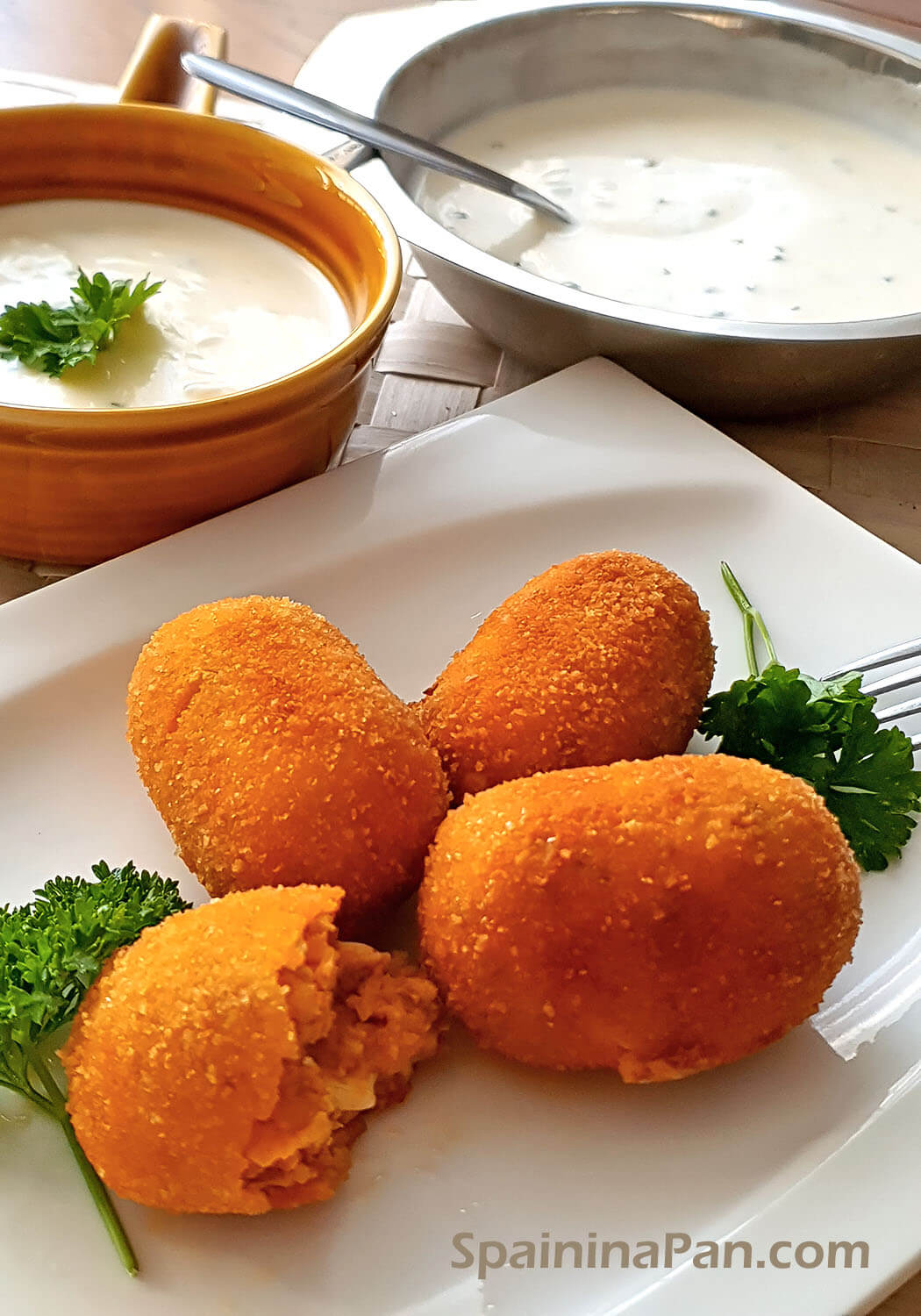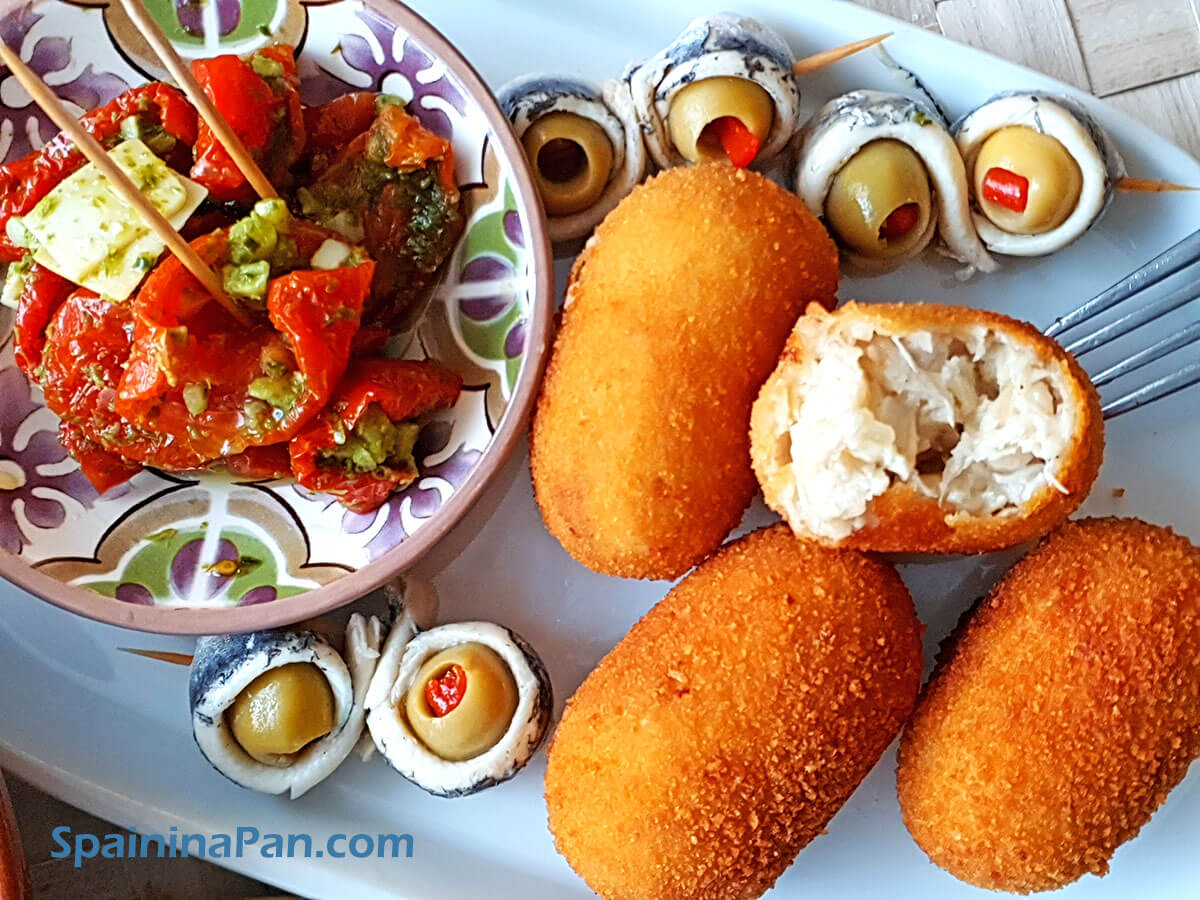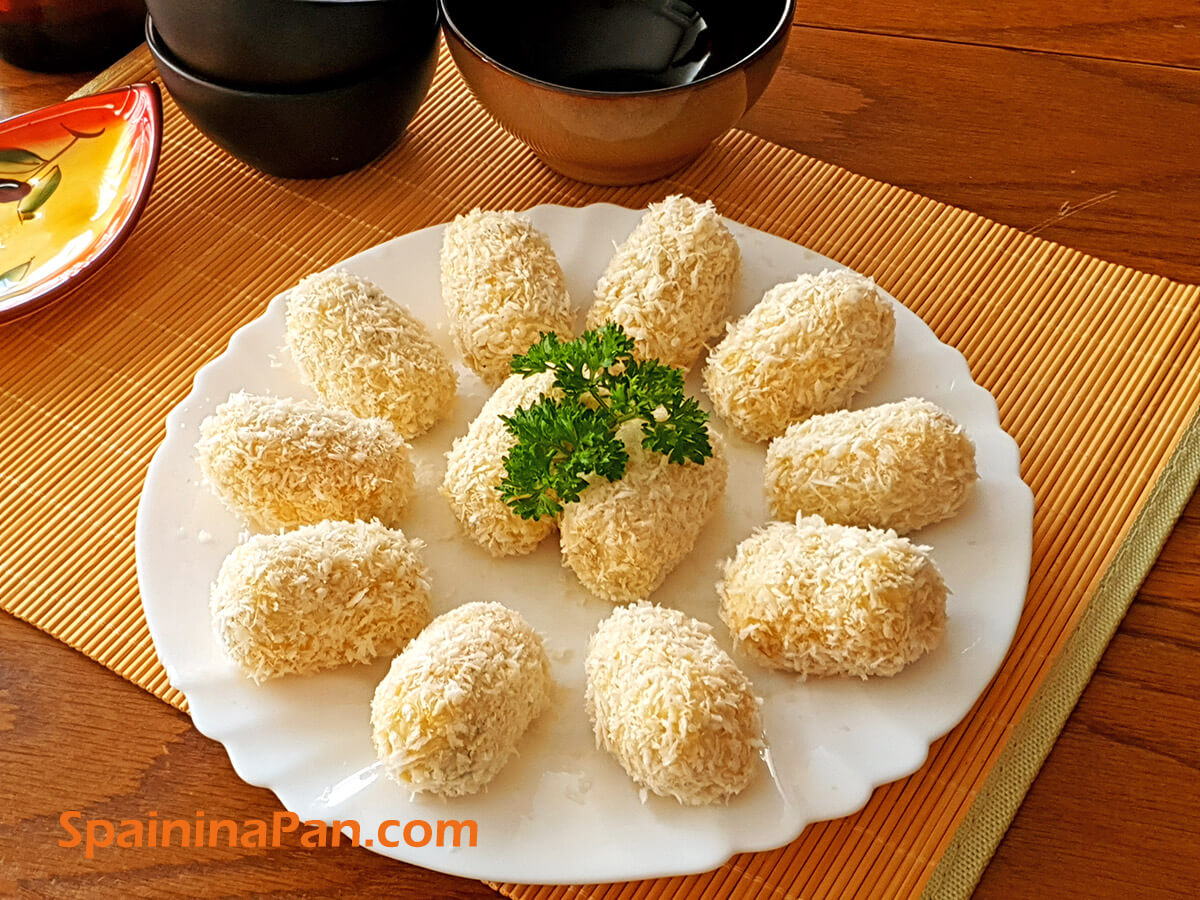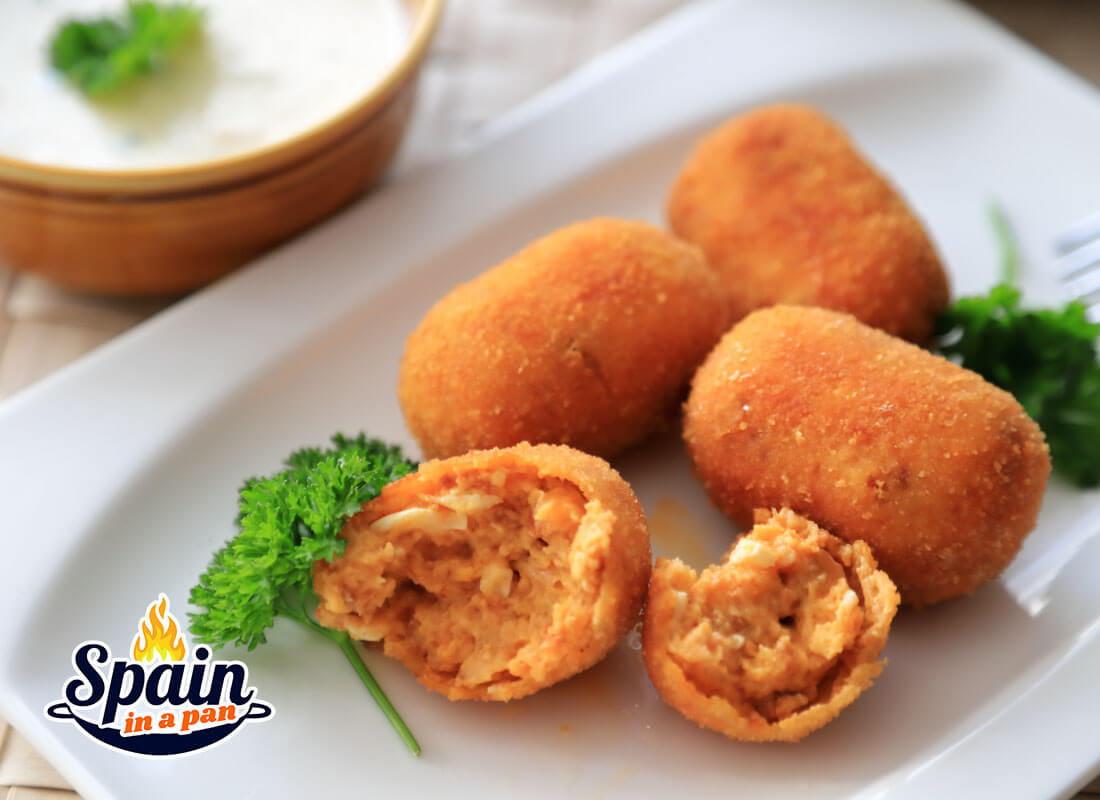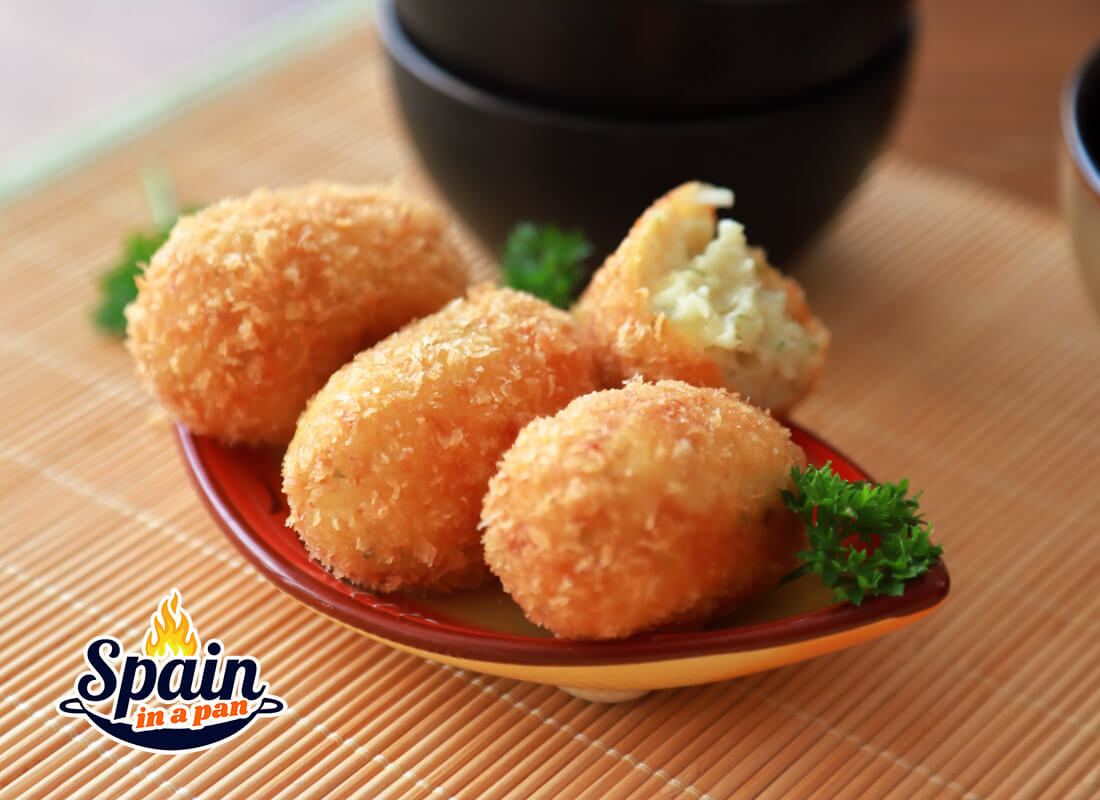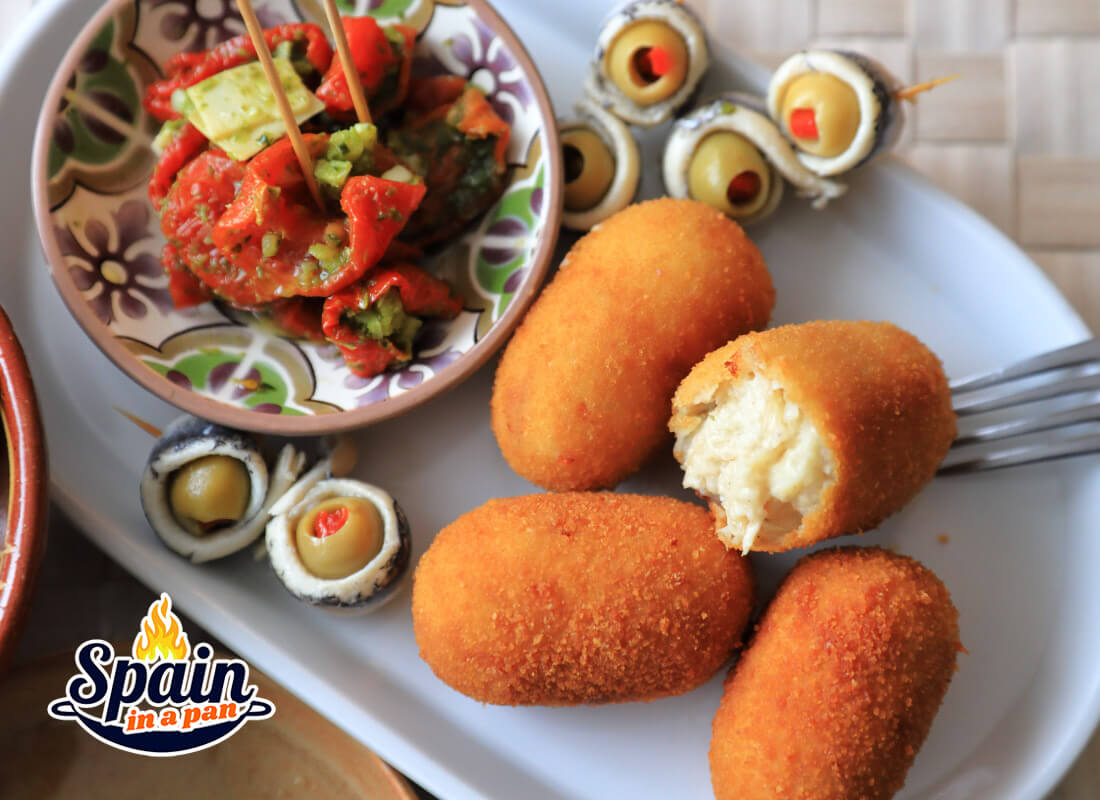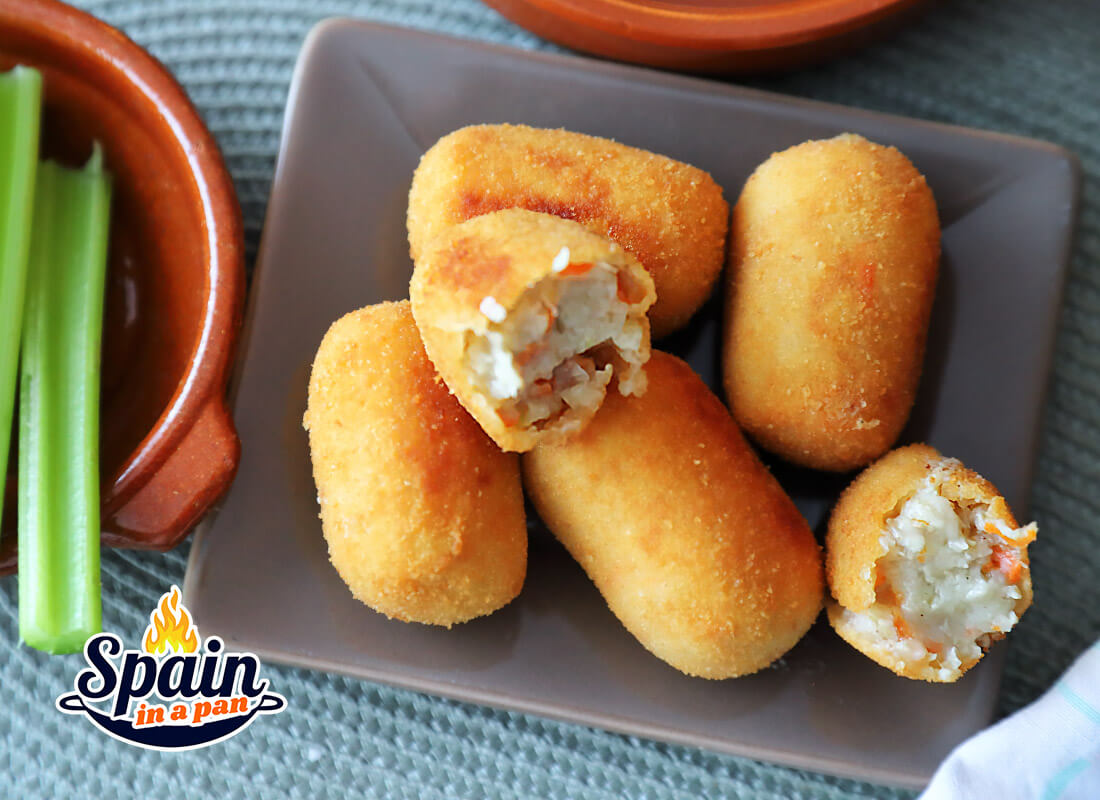Crispy Spanish Croquette Recipes
(Croquetas)
By Edu Valor / Author - Spanish Chef
My mother's Spanish croquette recipes were how I was introduced to these wonderful fritters. The crispy outside and creamy interior combine into something that really appeals to me.
She used to make the cod and chicken versions. Occasionally, she would try a cocido (a chickpea stew) version. Different, but oh so good.
When our mother made croquettes for lunch or dinner, it was a mouth-watering moment. We’d wait in anticipation to savor the crisps!
Well-made croquettes can be absolutely delicious. The ones with cod are my favorite! They can stand on their own as a dish—that's how good they are.
A basic salad on the side is perhaps all you need.
You may be tempted to pair them with a tangy dip (like a yogurt sauce), but I think the rich taste of some croquettes might be enough on its own. Sometimes you don't want to spoil something already good!
The Best Croquettes in the World
Today, there's a large variety of croquettes! In recent years, I've often seen them made in the shape of a ball. There's nothing wrong with that, but I prefer to make them elongated—the traditional shape. Just a personal preference!
I can safely say Spanish croquettes are the best you can find, both in taste and variety, and they're always based on béchamel sauce.
I'm not saying this because of my nationality. They hold croquette contests in the larger cities of Spain, and almost everyone I know speaks in superlatives about them.
The filling is usually made with a combination of ingredients (in addition to the béchamel) to give them that rich flavor.
The Most Popular Ones
- Croquetas de Pollo: This is a classic, often ordered at restaurants. Preferably made with tender chicken legs, and with that subtle touch of onion, it's always a winner!
- Croquetas de Jamón: Here we have both Serrano and Iberico versions—another popular choice. I use the tender parts of the jamón to make these.
- Croquetas de Bacalao: Any part of the cod works, but never overcook it! Preferably use fresh or desalted cod. With some parsley, this is my absolute favorite!
- Croquetas de Gambas: In second place—shrimp croquettes! Get the flavor right and you'll want make more. Both small and large shrimp can be used.
- Croquetas de Puchero: The chameleon of croquettes, since puchero is a general term for Spanish stews. The meats from the stew are used, with or without some broth.
- Croquetas de Cocido: Similar to puchero croquettes but with the flavor of cocido madrileño (a chickpea stew from Madrid). Delicious!
- Croquetas de Queso: An easy one to make, and many types of cheese can be used.
There are many types of these fritters in Spain. The list below includes just a few examples, but it will give you an idea of what most restaurants have to offer.
Where do Spanish Croquette Recipes Come From?
This delicacy has been around for ages. Our grandmothers put their own spin on them, but they were always delicious.
Croquettes have been an essential part of Spanish cuisine for a long time, with a wide variety to choose from. Although they were introduced by the French Napoleonic troops, the Spanish made them their own, creating new recipes based on bechamel.
Today, we have "croqueterías" serve nothing but these crispy fritters, sometimes with a side, sometimes without. Interestingly, many French visitors to Spain discover croquetas during their trip.
They likely originated in 16th-century France and were first documented in the 17th-century cookbook Le Cuisinier Roial et Bourgeois by François Massialot. However, at the time, they were simply small meatballs coated in breadcrumbs and fried.
As with many culinary creations, a legend arose. This one involves French King Louis XIV, whose chef is said to have invented the crispy treats.
It wasn't until 1817 that Antoine Carême, also known as the "chef of kings," created "croquettes à la royale," which most closely resemble the fritters we know today.
Whoever the true inventor was—since various stories exist—croquettes found their way to Spain through the French troops during the War of Independence, between 1808 and 1814.
During this period, French culture influenced Spain in various ways, including its cuisine. This cultural influence is known as "el afrancesamiento."
Like the versions from other countries, these Spanish croquette recipes are typical to Spain.
*****
